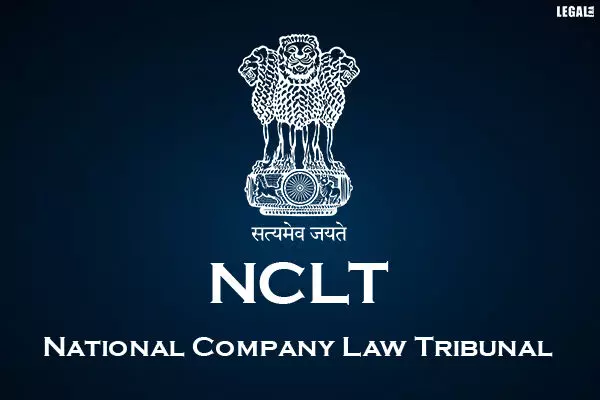- Home
- News
- Articles+
- Aerospace
- Artificial Intelligence
- Agriculture
- Alternate Dispute Resolution
- Arbitration & Mediation
- Banking and Finance
- Bankruptcy
- Book Review
- Bribery & Corruption
- Commercial Litigation
- Competition Law
- Conference Reports
- Consumer Products
- Contract
- Corporate Governance
- Corporate Law
- Covid-19
- Cryptocurrency
- Cybersecurity
- Data Protection
- Defence
- Digital Economy
- E-commerce
- Employment Law
- Energy and Natural Resources
- Entertainment and Sports Law
- Environmental Law
- Environmental, Social, and Governance
- Foreign Direct Investment
- Food and Beverage
- Gaming
- Health Care
- IBC Diaries
- In Focus
- Inclusion & Diversity
- Insurance Law
- Intellectual Property
- International Law
- IP & Tech Era
- Know the Law
- Labour Laws
- Law & Policy and Regulation
- Litigation
- Litigation Funding
- Manufacturing
- Mergers & Acquisitions
- NFTs
- Privacy
- Private Equity
- Project Finance
- Real Estate
- Risk and Compliance
- Student Corner
- Take On Board
- Tax
- Technology Media and Telecom
- Tributes
- Viewpoint
- Zoom In
- Law Firms
- In-House
- Rankings
- E-Magazine
- Legal Era TV
- Events
- Middle East
- Africa
- News
- Articles
- Aerospace
- Artificial Intelligence
- Agriculture
- Alternate Dispute Resolution
- Arbitration & Mediation
- Banking and Finance
- Bankruptcy
- Book Review
- Bribery & Corruption
- Commercial Litigation
- Competition Law
- Conference Reports
- Consumer Products
- Contract
- Corporate Governance
- Corporate Law
- Covid-19
- Cryptocurrency
- Cybersecurity
- Data Protection
- Defence
- Digital Economy
- E-commerce
- Employment Law
- Energy and Natural Resources
- Entertainment and Sports Law
- Environmental Law
- Environmental, Social, and Governance
- Foreign Direct Investment
- Food and Beverage
- Gaming
- Health Care
- IBC Diaries
- In Focus
- Inclusion & Diversity
- Insurance Law
- Intellectual Property
- International Law
- IP & Tech Era
- Know the Law
- Labour Laws
- Law & Policy and Regulation
- Litigation
- Litigation Funding
- Manufacturing
- Mergers & Acquisitions
- NFTs
- Privacy
- Private Equity
- Project Finance
- Real Estate
- Risk and Compliance
- Student Corner
- Take On Board
- Tax
- Technology Media and Telecom
- Tributes
- Viewpoint
- Zoom In
- Law Firms
- In-House
- Rankings
- E-Magazine
- Legal Era TV
- Events
- Middle East
- Africa
NCLT orders insolvency proceedings against Pancard Clubs

NCLT orders insolvency proceedings against Pancard Clubs
The bench observed that the company failed to honor the contract
The Mumbai Bench of the National Company Law Tribunal (NCLT) has admitted a petition initiating the Corporate Insolvency Resolution Process (CIRP) against Pancard Clubs Limited.
The Coram of PN Deshmukh (judicial member) and Shyam Babu Gautam (technical member) passed the order on a joint petition filed by 100 shareholders. The tribunal admitted Rajesh Sureshchandra Sheth as the Interim Resolution Professional (IRP).
The matter arose when Pancard defaulted in repayment of Rs.1,55,12,880 invested by the shareholders. They maintained the financial debt arose from the collective investment scheme (CIS) operated by the company under the guise of a timeshare business.
In its February 2016 order, the Securities and Exchange Board of India (SEBI) had directed the company to refund the amount of the investors worth Rs.7,035 crores within three months. The Securities Appellate Tribunal (SAT) upheld the order.
Appearing on behalf of the shareholders, advocate Nausher Kohli stated that the orders were clear that the investments made by over 50 lakh investors were accepted by the company under the guise of a timeshare scheme. It was for the purchase of room nights in various properties and resorts owned by it.
The regulatory body opposed the plea arguing that initiating CIRP would be detrimental to recovery proceedings already started by the regulator for violations under the SEBI Act.
However, the tribunal refused to consider the submission. It observed that the SEBI order did not bar the initiation of CIRP against the company. The bench also concluded that the company failed to honor the contract.
NCLT held, "The financial creditors disbursed the money against time value, which meant the petitioners were to receive a value higher than the invested amount as characteristics of the financial debt. Further, the petitioners have placed on record bank statements and financial contracts to prove the same."
The tribunal said the default by the company was more than the minimum amount stipulated under the Insolvency and Bankruptcy Code (IBC). Hence, it ruled, "The debt and default stand established and there is no reason to deny the admission of the petition."



